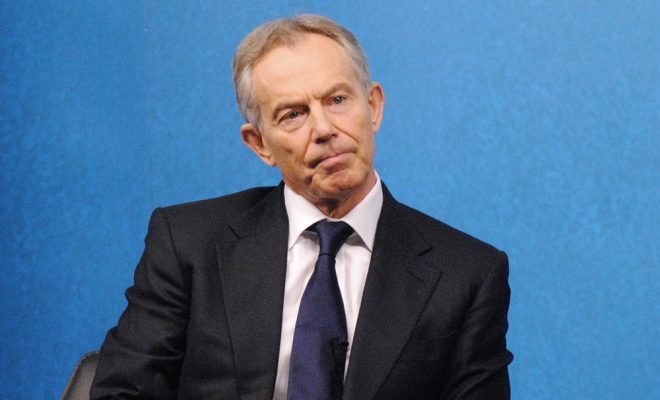 Image Courtesy of [Chatham House via Flickr]
Image Courtesy of [Chatham House via Flickr]
World
Report Blasts Tony Blair, UK Government’s Handling of Iraq War
A report conducted by a five-member panel concluded that while the U.K.’s policy on the Iraq War was erroneous and costly, it was not illegal.
The Iraq Inquiry, a seven year undertaking, was launched in 2009 by former Prime Minister Gordon Brown. The 6,000 page report sought to determine if the Iraq invasion was “right and necessary” and “whether the U.K. could–and should–have been better prepared for what followed,” according to a statement by Sir John Chilcot, the retired civil servant who spearheaded the effort.
U.K. forces joined the U.S.-led coalition in March 2003. The conflict, which was sparked by the 9/11 terrorist attacks, killed 179 British troops. Nearly 4,500 American troops died, along with over 100,000 Iraqis, including civilians.
As a thesis to a handful of key findings, Chilcot concluded, “The U.K. chose to join the invasion of Iraq before the peaceful options for disarmament had been exhausted. Military action at that time was not a last resort.”
To the detriment of then Prime Minister Tony Blair’s detractors, the report saw no reason to suspect intentional wrongdoing or unlawful activity on the part of Blair or Parliament.
At a press conference Wednesday following the Chilcot report’s release, Blair said his decision to join U.S. forces in Iraq was “the hardest, most momentous, most [agonizing decision] I took in my ten years as Prime Minister.”
Blair lamented the thousands of Iraqi deaths that resulted from the invasion, but did not go as far as expressing regret for the decision. He was steadfast in defending the U.S.-led coalition’s decision to depose Saddam Hussein, the tyrannical leader of Iraq who was eventually captured by U.S. forces and hanged in Iraq.
He also sought to console the families of British soldiers who perished on the battlefield, by claiming they did not die in vein. “[British forces] fought in the defining security struggle of the 21st century, against the terrorism and violence which the world over destroys lives and divides communities,” said Blair.
Here are some of the findings from the report, which is based on testimony from 150 witnesses and 150,000 documents:
- The U.K.’s judgement of the severity of the WMD (weapons of mass destruction) threat posed by Iraq was not justified by the evidence, or lack thereof.
- Blair underestimated the consequences of an invasion, and did not properly prepare for the vacuum left by Hussein’s absence.
- Blair’s government understood the risks (i.e. internal strife in Iraq, active Iranian pursuit of its interests, regional instability, and Al Qaida activity in Iraq) and joined the invasion anyway.
Chilcot ended the report by offering a suggestion for what we can learn from the U.K.’s errors in the Iraq War. “Above all, the lesson is that all aspects of any intervention need to be calculated, debated and challenged with the utmost [rigor],” he said. “Sadly, neither was the case in relation to the U.K. Government’s actions in Iraq.”








Comments